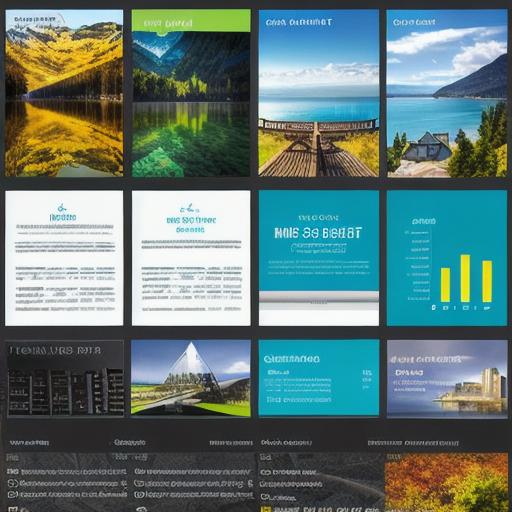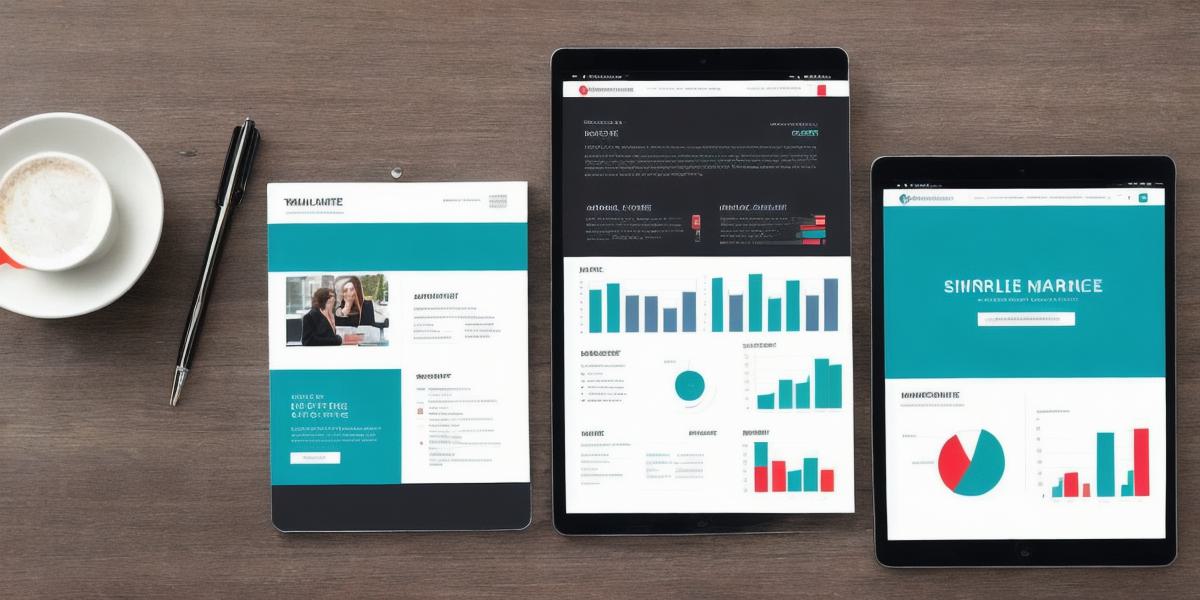What are the key components of a marketing budget template and how can it help businesses plan their marketing expenses effectively
When it comes to marketing, budgeting is a crucial element for any business to succeed. Creating a well-structured and effective marketing budget can help companies allocate resources efficiently and achieve their marketing goals. But with so many different marketing channels and tactics available today, how do businesses determine the right allocation of funds?
A marketing budget template provides a framework for businesses to plan and manage their marketing expenses. It outlines the different marketing channels and tactics that a business can use and helps allocate resources accordingly. In this article, we will explore the key components of a marketing budget template and how they can help businesses plan their marketing expenses effectively.
I. Introduction
Marketing is an essential aspect of any business, but it requires careful planning to achieve its goals. A marketing budget template provides a framework for businesses to allocate resources efficiently and achieve their marketing objectives. In this article, we will explore the key components of a marketing budget template and how they can help businesses plan their marketing expenses effectively.
II. Understanding Your Business Objectives
Before creating a marketing budget template, it is essential to understand your business objectives. These objectives can be short-term or long-term and should align with the overall goals of the business. Some common business objectives include increasing brand awareness, generating leads, driving sales, and improving customer engagement.
III. Identifying Your Target Audience
Once you have defined your business objectives, it is essential to identify your target audience. Knowing your target audience’s demographics, interests, behaviors, and pain points can help you create more effective marketing campaigns. You can use tools like Google Analytics and social media analytics to gather insights about your target audience.
IV. Determining Your Marketing Channels and Tactics
After defining your business objectives and identifying your target audience, it’s time to determine which marketing channels and tactics will be most effective for your business. Some common marketing channels include social media, email marketing, search engine optimization (SEO), pay-per-click advertising (PPC), content marketing, and event marketing.
V. Estimating Your Marketing Budget

Once you have determined which marketing channels and tactics will be most effective for your business, it’s time to estimate your marketing budget. To do this, you need to allocate resources based on the different marketing channels and tactics you plan to use. You can use industry benchmarks or research to determine the average cost per acquisition (CPA) for each marketing channel and tactic.
VI. Creating Your Marketing Budget Template
Now that you have estimated your marketing budget, it’s time to create a marketing budget template. The marketing budget template should include the different marketing channels and tactics you plan to use, as well as the cost and expected return for each channel and tactic. You can use spreadsheets like Microsoft Excel or Google Sheets to create your marketing budget template.
VII. Implementing Your Marketing Budget Template
Once you have created your marketing budget template, it’s time to implement it. This involves tracking your marketing expenses and measuring the return on investment (ROI) for each channel and tactic. You can use tools like Google Analytics or marketing automation software to track your marketing expenses and measure ROI.
VIII. Adjusting Your Marketing Budget Template

Marketing budget templates are not static, and they need to be adjusted regularly based on the changing market conditions and business objectives. You should review your marketing budget template periodically and make necessary adjustments to ensure that you are allocating resources efficiently and achieving your marketing goals.
Case Studies: How Marketing Budget Templates Help Businesses Succeed
A well-structured and effective marketing budget template can help businesses achieve their marketing goals and succeed in the long run. Here are a few case studies that demonstrate how marketing budget templates have helped businesses plan their marketing expenses effectively.
Case Study 1: John Deere
John Deere, a leading manufacturer of agricultural equipment, faced a significant challenge when it came to marketing its products. The company’s products were expensive and complex, making it difficult for customers to understand the value they provided. To address this challenge, John Deere developed a marketing budget template that included several channels and tactics, including social media, content marketing, and email marketing.
John Deere allocated resources to each channel and tactic based on its expected ROI. For example, the company invested heavily in content marketing, creating informative blog posts and videos that demonstrated the value of its products. The result was a significant increase in brand awareness and customer engagement. John Deere’s social media presence also grew significantly, with more followers and higher engagement rates.
Case Study 2: HubSpot
HubSpot, a leading marketing and sales software company, has been a pioneer in creating effective marketing budget templates. The company developed a free marketing budget template that businesses could use to plan their marketing expenses. The template includes several categories, including advertising, content, events, social media, and analytics.
By using the HubSpot marketing budget template, businesses can estimate their marketing budget based on industry benchmarks and research. The template also helps businesses allocate resources effectively by identifying which channels and tactics are most effective for achieving their business objectives.
Case Study 3: Zappos
Zappos, an online shoe and clothing retailer, is known for its innovative approach to marketing. To achieve its goal of becoming the "most customer-centric company in the world," Zappos developed a unique marketing budget template that it shared with its employees.
The Zappos marketing budget template included several categories, including advertising, content, events, and social media. But unlike traditional marketing budget templates, Zappos’ template also included a category for "fun." The company allocated resources to fun activities like employee events, parties, and team-building exercises.
The result was a significant increase in employee engagement and morale, which translated into better customer service and increased sales. Zappos’ unique approach to marketing budgeting helped the company achieve its long-term business objectives while also creating a positive workplace culture.
Expert Opinions: Why Marketing Budget Templates Matter
Marketing budget templates are essential tools for businesses looking to plan their marketing expenses effectively. Here are some expert opinions on why marketing budget templates matter.
- "Marketing budget templates are an essential tool for any business that wants to achieve its marketing goals," says Neil Patel, a digital marketing guru and founder of Neil Patel Digital. "They help businesses allocate resources efficiently and measure ROI effectively."
- "Marketing budget templates can help businesses avoid wasting money on ineffective marketing channels and tactics," says Ann Handley, the Chief Content Officer at MarketingProfs and author of the book "Content Marketing: The Essential Guide." "By allocating resources based on expected ROI, businesses can achieve their marketing objectives more effectively."
- "Marketing budget templates are especially important for small businesses with limited resources," says Michael Hyatt, the founder of MichaelHyatt.com and author of the book "Platform: How to Build a Following and Reach Big." "By using a marketing budget template, small businesses can prioritize their marketing efforts and achieve their goals with less financial risk."
Comparing Marketing Budget Templates to Other Business Planning Tools
Marketing budget templates are just one tool that businesses can use to plan their expenses. However, they have several advantages over other business planning tools.
- Marketing budget templates are specifically designed for marketing expenses, whereas other business planning tools like balance sheets and income statements focus on financial metrics like revenue and expenses.
- Marketing budget templates help businesses allocate resources effectively by identifying which channels and tactics are most effective for achieving their business objectives. This is not possible with other business planning tools that do not provide specific guidance on how to allocate resources.
- Marketing budget templates can be customized to fit the unique needs of a business, whereas other business planning tools are more generic in nature.
Summary: How to Plan Your Marketing Expenses Effectively
Marketing budget templates are essential tools for businesses looking to plan their marketing expenses effectively. By allocating resources based on expected ROI and measuring ROI regularly, businesses can achieve their marketing goals and succeed in the long run. Whether you’re a small business or a large corporation, a well-structured and effective marketing budget template can help you plan your marketing expenses and achieve your business objectives.




